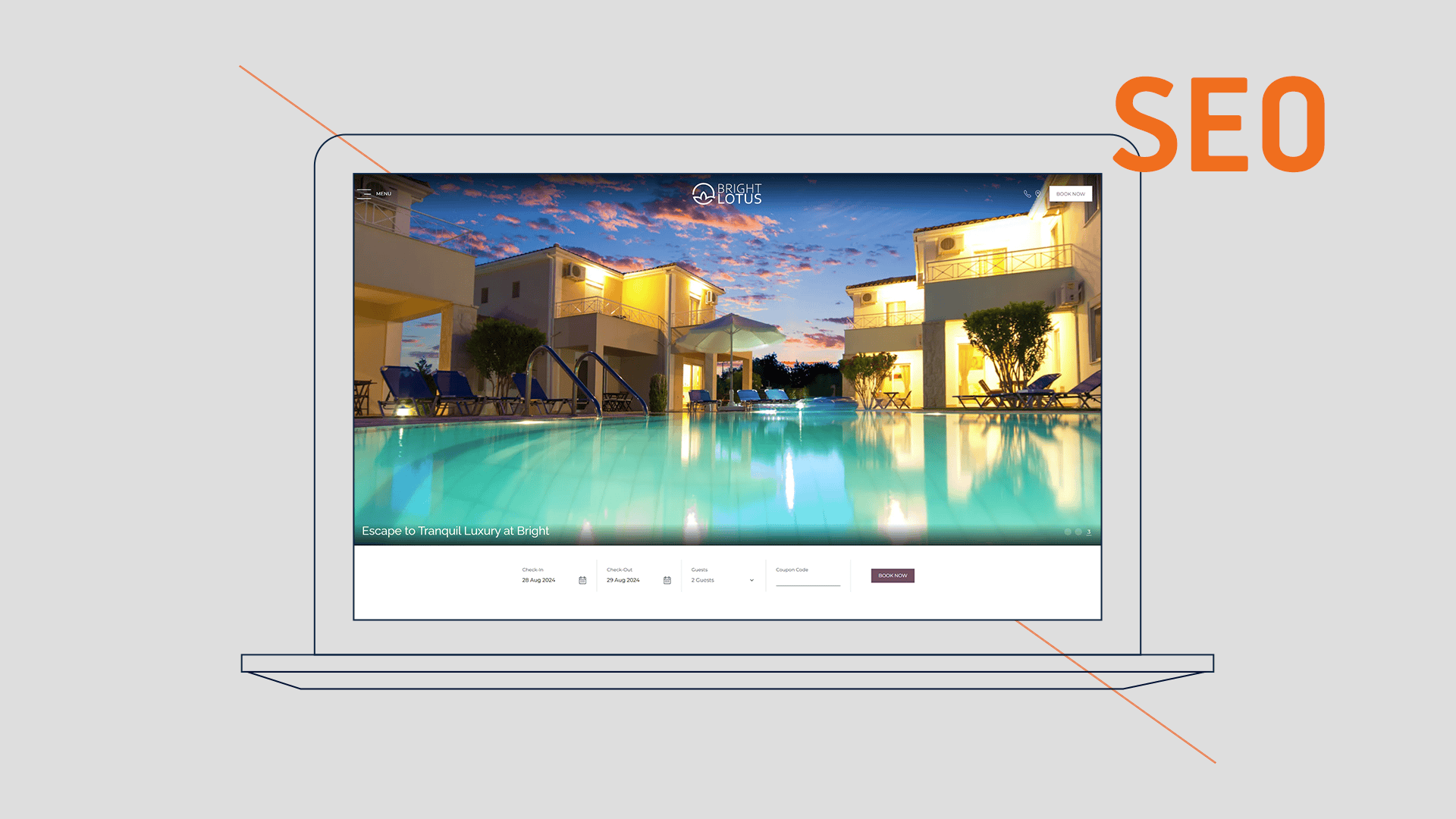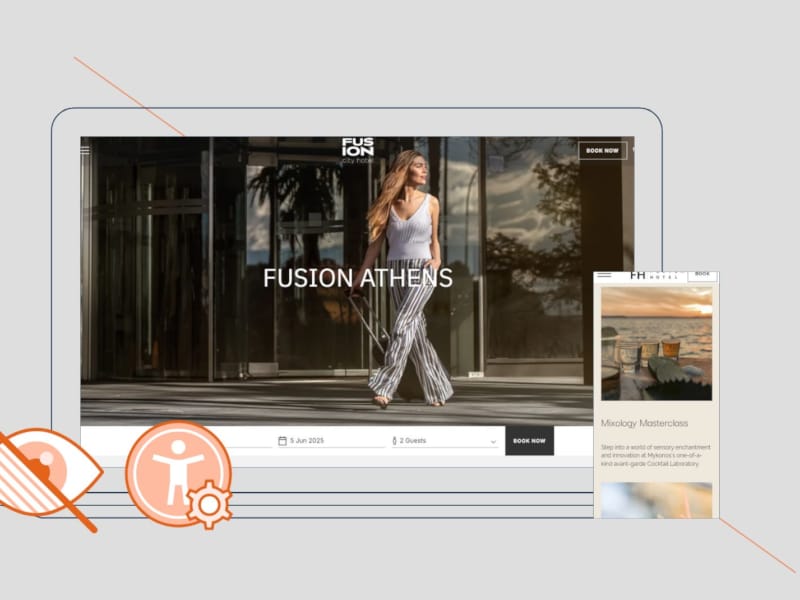
Best SEO Practices for Hotel Websites

In the competitive world of hospitality, having a well-optimized hotel website can make all the difference in attracting guests and securing bookings. With the right SEO strategies, your hotel website can rise to the top of search engine results, making it easier for potential guests to find you.
What is SEO?
SEO (Search Engine Optimization), is the practice of improving your website's visibility in search engine results pages (SERPs) through various actions. The goal of SEO is to increase the quantity and quality of traffic to your website through organic search results. For hotels, this means optimizing your website so that when travelers search for accommodations in your area, your hotel appears prominently in the search results.
The Importance of SEO
SEO is crucial for hotel websites for several reasons:
- Increased Visibility: A well-optimized hotel website ranks higher in search engine results, which increases its visibility to potential guests. Higher visibility means more people are likely to visit your site, explore your offerings, and make a booking.
- Cost-Effective Marketing: Unlike paid advertising, which requires significant investment, SEO is a long-term strategy that builds organic traffic over time. This makes it a cost-effective way to attract visitors to your hotel website.
- Enhanced User Experience: Good SEO practices include actions that improve the overall user experience on your website. This includes faster load times, mobile-friendliness, and easy navigation - all of which contribute to a better user experience and higher conversion rates.
- Credibility and Trust: Websites that rank high in search results are often perceived as more credible and trustworthy. By improving your website's search rankings, you build trust with potential guests and enhance your brand's reputation.
Best SEO Practices
To achieve optimal results with hotel website SEO, consider implementing the following best practices:
- Keyword Research: Identify relevant keywords that potential guests might use when searching for accommodations. This includes primary keywords like "hotels in London" and "best London hotels," as well as long-tail keywords such as "boutique hotels in the center of London" or "family-friendly hotels in Piccadilly London".
- On-Page Optimization: Ensure that your hotel website's pages are optimized for your target keywords. This includes incorporating keywords into title tags, meta descriptions, headers, and body content. Aim for a natural integration of keywords to maintain readability and user experience, and make sure you don't go overboard with these actions
- High-Quality Content: Create engaging and informative content that provides value to your visitors. This could include detailed information about your accommodation and facilities, insights about local attractions and travel tips, or special offers at your hotel. High-quality content not only attracts visitors but also encourages them to stay longer on your site.
- Backlink Building: Obtain high-quality backlinks from reputable sites in the travel and hospitality industry. This could involve being featured in dedicated travel guides and blogs, being included in tourism boards as well as partnership with local businesses.
- Technical SEO: Optimize your website's technical aspects, such as site speed, mobile-friendliness, and secure connections. A technically proficient hotel website, such as the websites launched through Hotelwize's platform, is crucial for good SEO and provides a better user experience.
SEO Practices for Hotels
For hotels specifically, here are tailored SEO practices to enhance your hotel website SEO:
- Local SEO: Optimize your hotel website for local searches by including location-specific keywords and creating Google My Business listings. Encourage satisfied guests to leave reviews and ratings on local directories and review sites.
- Mobile Optimization: Ensure your hotel website is mobile-friendly. Search engines such as Google consider mobile-friendliness one of the main indicators for high-ranking websites. In addition, the majority of travelers use their smartphones to search for and book accommodations, so a mobile-optimized site is essential for capturing this audience.
- Visual Content: Invest in high-quality images and videos of your hotel's rooms, amenities, and local attractions. Use descriptive alt text for images to improve their visibility in search engines and enhance the overall appeal of your site. Make sure not to use content that you have copied from other websites.
- Internal Linking: Build an internal linking structure that connects various pages on your hotel website. This helps search engines understand the relationship between different pages and improves user navigation.
- Local Listings: Make sure your hotel is listed in relevant local directories and travel websites. Consistent information (Name, Address, Phone Number) across all listings helps improve local search rankings.
How You Can Improve Your Hotel Website SEO
- Conduct a Site Audit: Regularly perform a comprehensive site audit to identify and fix any SEO issues. This includes checking for broken links, optimizing page speed, and ensuring that all content is up-to-date and relevant.
- Leverage SEO Tools: Utilize SEO tools such as Google Search Console to track your website's performance, analyze keywords, and monitor backlinks. These tools provide valuable insights that can help refine your SEO strategy.
- Focus on User Experience: Prioritize creating a user-friendly experience on your website. This involves easy navigation, clear calls to action, and a seamless booking process.
- Stay Updated: SEO is an evolving field, so it's important to stay informed about the latest trends and algorithm changes. Read respective online articles and regularly update your SEO practices to align with current best practices and industry standards.
- Seek Expert Help: If SEO seems overwhelming, consider consulting with an SEO expert or agency. They can provide tailored advice and strategies to enhance your hotel website's search engine performance.
Choose Hotelwize
As mentioned above, one of the most important factors for the high-ranking of your hotel website is the technology that you use and how well optimized it is for SEO. Hotelwize platform features state-of-the-art technology that ensures the lighting-fast loading of your hotel website's pages. In addition it includes SEO friendly structure, with the needed meta titles, meta descriptions and h1/h2 headings, as well as ready to activate schema.org plugins. Additional functionalities such as the automated AI-generated alt descriptions for your images, enhance your actions to improve your hotel website's SEO.
By implementing these best practices and focusing on SEO for hotels, you can significantly improve your hotel website's visibility, attract more visitors, and ultimately drive more bookings. Remember, SEO is a long-term investment that requires patience and persistence, but the results can be well worth the effort.
